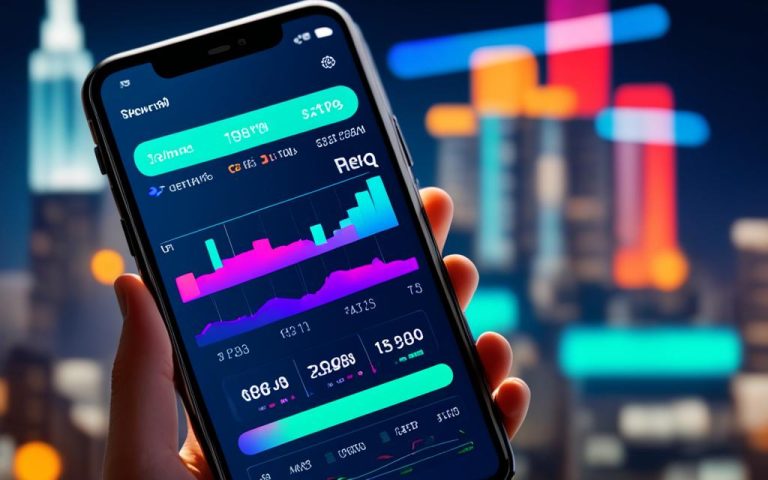The crypto market is unlike the stock market. It’s open 24/7. But, how much you can buy or sell changes throughout the day. This is why knowing when the market resets or changes is important for traders.
Crypto markets usually reset between 8 a.m. to 4 p.m. Knowing this is key for trading success. Traders often check prices from exactly 24 hours ago to guess what might happen next. Unlike stocks or bonds, crypto doesn’t have fixed trading hours.
Best Times to Trade in the Crypto Market
Choosing the right time to trade in crypto is key for success. With the market always open, understanding the key factors is crucial. These include the trading hours, volume, liquidity, volatility, and how weekends affect trading.
Trading volume is very important. It shows how active the market is by the frequency of trades. A higher volume means better opportunities to trade without losing out. This is because more people are trading, making it easier to find buyers or sellers.
Liquidity is also vital. It means how easily you can buy or sell without changing the price much. Trading when markets are most liquid is smart. This way, you have more people to trade with and costs are lower.
When it comes to timing, volatility matters too. It shows how much prices change. Extreme changes give you chances to make money fast, but it’s also risky. For those who like this risk, trading when the market is most active is best.
Don’t forget about weekend trading. Because fewer pros are trading then, the market is quieter. This can mean both less liquidity for big trades but also unique chances for price jumps because of more regular traders getting involved.
To trade crypto well, think about these points carefully. Understanding the ins and outs of the market helps you make better decisions. Aim to match your trading strategy with your goals and how much risk you’re willing to take.
The Impact of Global Market Hours on Crypto Trading
While the crypto market never closes, its activity isn’t steady during the day. Crypto trading interacts a lot with U.S. trading hours, especially when the stock market first opens. This was clearly seen in the early part of 2022. During this time, Bitcoin’s trading volume hit its peak.
On weekends, though, the big professional traders take a break. This causes less activity and fewer chances for amazing trades. But, everyday people keep trading their digital money even on weekends.
For smaller traders in the market, the time to trade also depends on Ethereum’s gas fees. These fees are charged for using the Ethereum network and can change. To save money on gas fees, it might be smart to avoid trading when the U.S. market first opens.
Knowing how global market hours affect trading is key to trading better. It’s smart to read up from trustworthy sources like CoinDesk, Axi, and SoFi. They offer great tips and detailed info on when to trade cryptocurrencies.
FAQ
When does the crypto market reset?
The crypto market doesn’t reset at a specific time each day, unlike traditional markets. Most traders consider the period between 8 a.m. and 4 p.m. as significant. During these hours, they check the previous day’s prices to forecast changes.
Unlike stocks and bonds, crypto trading happens around the clock. This means you can trade anytime, not just during set hours.
How do I choose the best times to trade in the crypto market?
Finding the best time to trade in crypto is difficult because it’s always open. Look for times when there’s lots of trading (volume) and many people buying and selling (liquidity).
The ideal time to trade is when volume and liquidity are high. More trade opportunities come when the market is very active. Trading on weekends may offer chances for big gains, since fewer pros are trading then.
What is the impact of global market hours on crypto trading?
Western institutions have made the crypto market more active during U.S. hours. The busiest time is usually when the U.S. stock market opens. Knowing when trading is most active globally helps traders make better decisions.
On weekends, fewer institutional traders are involved, but it can still be lively. Meanwhile, trading DeFi tokens on Ethereum depends on network traffic and gas prices. For trades that aren’t urgent, avoid busy U.S. hours to lower your fees.



















